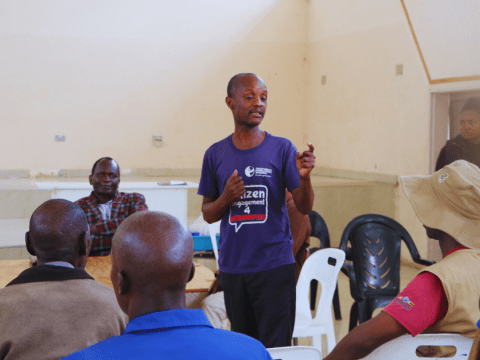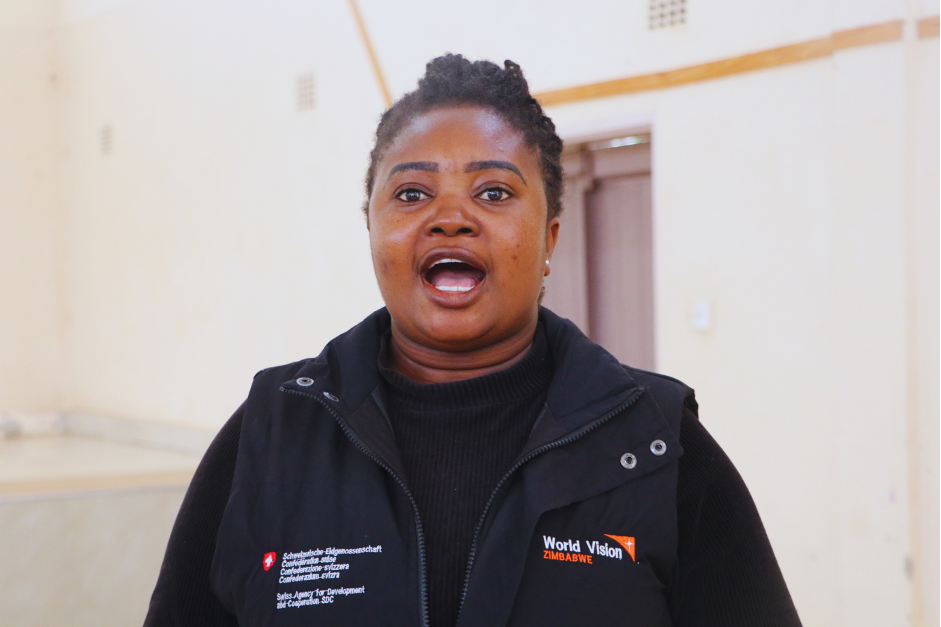Breaking the Silence: Epworth Men's Forum Sparks Change in GBV Conversations

By Leana Padera (Communications Graduate Intern)
"What would you do if your 13-year-old daughter came home late and said she was with her boyfriend? Would you send her back or intervene?"
This powerful question opened an eye-opening discussion at the Men’s Forum in Epworth, hosted by World Vision Zimbabwe under the El Niño Life Saving Cash Transfer Project, funded by the Swiss Agency for Development and Cooperation. The event brought together men from the community to reflect on their roles in addressing Gender-Based Violence (GBV) and the cultural norms that often go unchallenged.
When we talk about GBV, the focus often centres on women and girls—and rightly so, given the disproportionate impact. However, what’s often missing is how men perceive, experience, and sometimes sustain GBV, and the cultural barriers that prevent them from speaking out.
The forum created a safe, judgment-free space for men to engage in honest conversations, share experiences, and learn about how the law protects all individuals from domestic violence.
Mrs. Matseketsa from the Department of Social Welfare led a session on Section 52 of the Zimbabwean Constitution, which guarantees every person’s right to personal security and freedom from violence. She also unpacked the Domestic Violence Act, explaining who it protects and how it aims to reduce GBV in communities.

During her session, Matseketsa posed the question about the 13-year-old daughter scenario. Responses varied—some men said they would send the child back to assert authority, while others said they would counsel her. The discussion revealed how deeply rooted cultural values can influence parenting choices and how legal education can help reshape them.
Matseketsa used the scenario to highlight the legal and moral responsibility adults have to protect minors. She reminded participants that in Zimbabwe, any sexual activity with someone under 18 is statutory rape, regardless of perceived consent. Her point was clear: cultural norms must not overshadow the law when it comes to protecting children.
Sergeant Davies, a Public Relations Officer from Epworth Police Station, led another important discussion, urging men to speak out if they are victims of abuse. She highlighted the role of the Victim Friendly Unit, which offers confidential support for male survivors.

“Speaking out is not a sign of weakness—it’s a sign of strength and courage,” she said. “Just because you’re a man doesn’t mean your pain is any less valid. The law is here for you, too. There are structures in place to listen, support, and protect you. No one deserves to suffer in silence.”
Some attendees expressed frustration, saying the justice system seems to favour women. Sergeant Davies addressed this by explaining that the law is designed to protect everyone equally, and understanding its purpose is key to ensuring justice for all.

Prudence Nyamayedenga, a Gender Equality and Social Inclusion (GESI) Facilitator with World Vision Zimbabwe, closed the forum by thanking the men for their active participation.
“I’m grateful for every man who attended today. I truly believe that when men are given the space to learn and speak freely, we can start to change the narrative and reduce cases of GBV in Epworth,” she said.
This forum marked a meaningful step toward challenging harmful norms, building empathy, and creating a community where safety, respect, and accountability are shared values. With more spaces like this, men can become powerful allies in the fight against gender-based violence—and that journey has already begun.